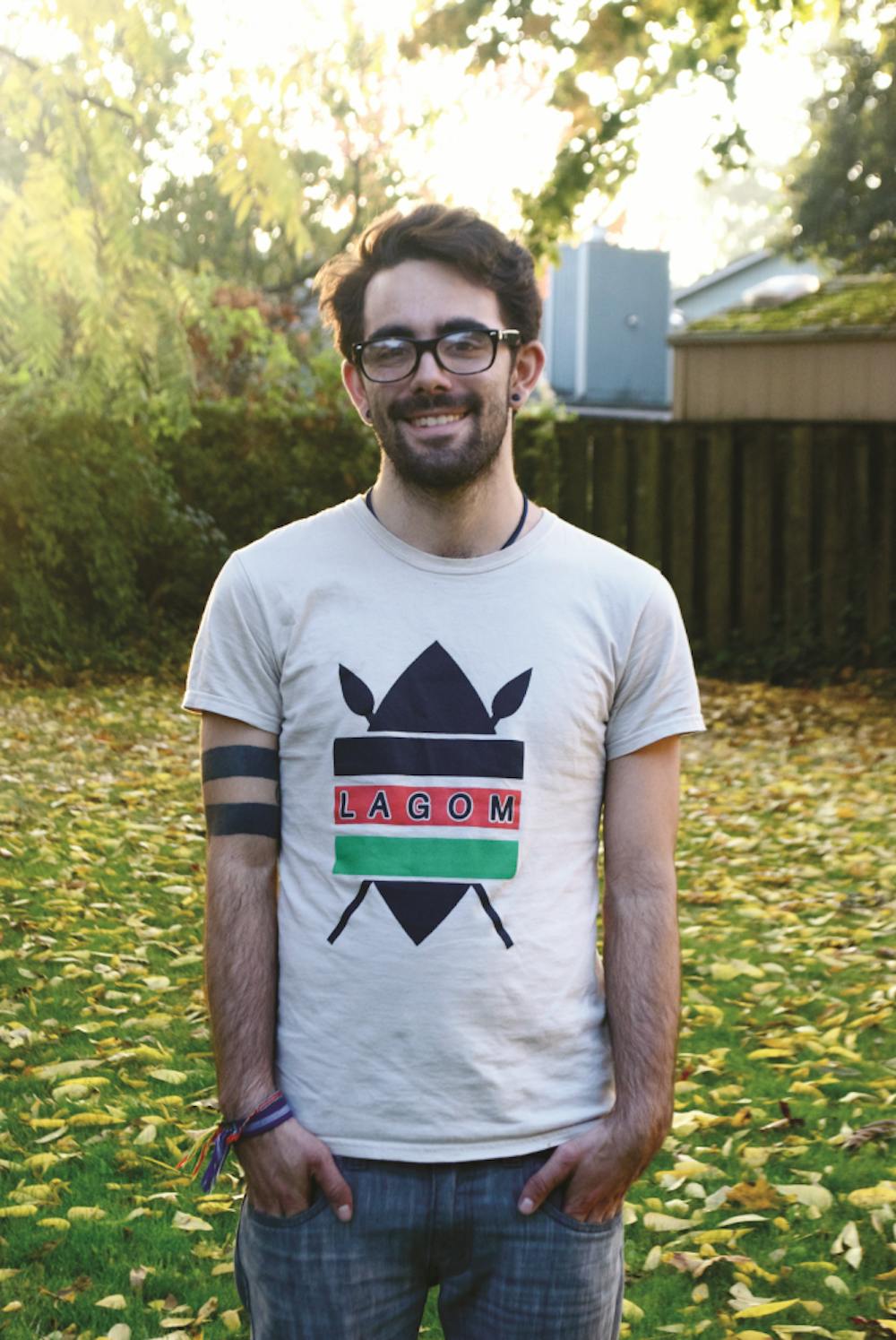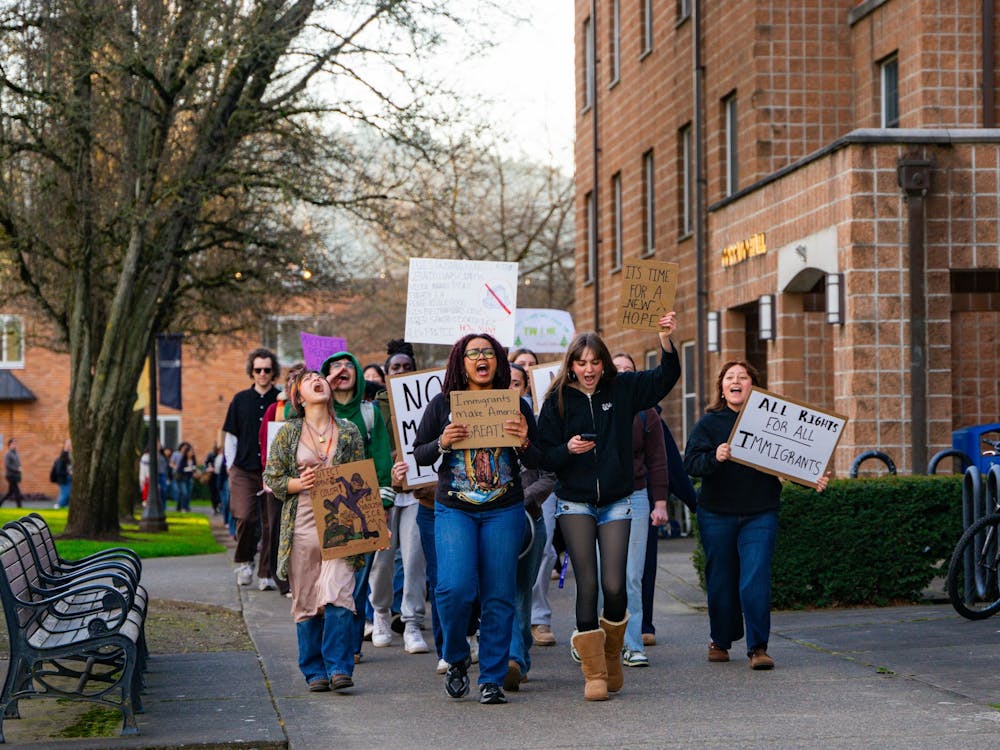UP students participate in a ten-week internship in Africa
Taylor Bergmann (Talley Carlston | THE BEACON)
By Rachel McIntosh Staff Writer mcintosh14@up.edu
During 10 weeks working in some of the most impoverished countries in the world, a group of UP students will learn how to serve in a sustainable way.
The East Africa Initiative Internship, a Moreau Center program, selects three students to partner with the Foundation for Sustainable Development to cultivate their entrepreneurship skills and learn about grant writing as well as international sustainability principles.
Applications are due Nov. 30 for the 2012 summer program.
Last year, the Moreau Center sent fifth-year senior Taylor Bergmann, senior Kurt Berning and 2011 alumna Elle Hoxworth.
"We are looking for someone who has a lot of service experience as well as international travel experience," Berning said. "It's not a program for someone who has never done work abroad or been involved with the Moreau Center. But anyone who has a passion for it and has some experience should think about applying."
According to Laura Goble, Director of the Moreau Center, the Foundation for Sustainable Development gets to know the interns as well as their skills and interests. The interns are then matched with grass roots organizations that are congruent with each student.
"The program doesn't just target business students," Goble said. "Students from every discipline need those entrepreneurial skills to develop creative solutions to what's going on in the world and the problems that are happening in our communities."
During their stay in Africa, students have the opportunity to immerse themselves in the culture by working with a sustainable organization. Students can also work with the community to establish a new organization that can be fostered and supported by the people of that particular African community.
"Sustainable development is asking ‘What will happen to the programs if we were to disappear tomorrow?'" Bergmann said. "It is about engineering your programs to work in a way that, if for some reason, all your money disappears tomorrow, those programs would still be able to run themselves without your fingerprints or executive skills behind the program."
According to Bergmann, partnering people who have innovative ideas with people who know the history of the community and what is best for the culture is the strongest and most effective way to enrich a community.
"You have to know about the community before you can make a difference," Berning said. "It's about learning and being able to be an ambassador for causes like this."
The Foundation for Sustainable Development focuses on helping the interns understand the difference between aid and development, according to Goble.
"International aid is addressing the immediate and urgent needs by giving money and resources," Goble said. "Development is about developing the system. It's about capacity building and leaving a legacy of change. So we were really excited about finding an organization that would get students to think beyond helping Africa, and understanding that mutually beneficial partnership is really the way to address global inequities."
For now, the program is focused mainly in Kenya, where UP and Holy Cross Missions saw the greatest need for development in entrepreneurial programs that support sustainable communities. The goal of the Foundation for Sustainable Development is to use resources already available to the Kenyan people to foster programs that will promote a better community.
"You see a lot of people who have a lot of knowledge and have started some really successful organizations and achieve some pretty amazing results within their community with absolutely no resources," Bergmann said.
Some of the biggest challenges the interns faced were being able to bridge the cultural gaps within the communities as well as having the patience to work together with these different cultures successfully.
"There is obviously a culture shock and adjustment," Berning said. "The biggest challenges I faced personally were adjusting to the Kenyan style of work and a different value system. It's not about time as much as it is about relationships. It's not about what you get done and the amount of what you get done as much as it is how you do it."
Kurt Berning (Talley Carlston | THE BEACON)








